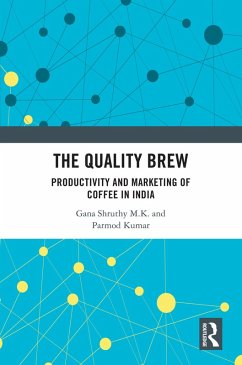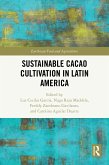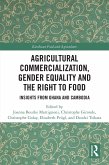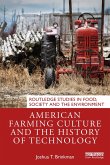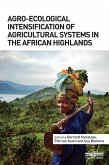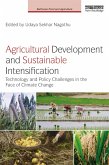Gana Shruthy M. K., Parmod Kumar
The Quality Brew (eBook, PDF)
Productivity and Marketing of Coffee in India
44,95 €
44,95 €
inkl. MwSt.
Sofort per Download lieferbar

22 °P sammeln
44,95 €
Als Download kaufen

44,95 €
inkl. MwSt.
Sofort per Download lieferbar

22 °P sammeln
Jetzt verschenken
Alle Infos zum eBook verschenken
44,95 €
inkl. MwSt.
Sofort per Download lieferbar
Alle Infos zum eBook verschenken

22 °P sammeln
Gana Shruthy M. K., Parmod Kumar
The Quality Brew (eBook, PDF)
Productivity and Marketing of Coffee in India
- Format: PDF
- Merkliste
- Auf die Merkliste
- Bewerten Bewerten
- Teilen
- Produkt teilen
- Produkterinnerung
- Produkterinnerung

Bitte loggen Sie sich zunächst in Ihr Kundenkonto ein oder registrieren Sie sich bei
bücher.de, um das eBook-Abo tolino select nutzen zu können.
Hier können Sie sich einloggen
Hier können Sie sich einloggen
Sie sind bereits eingeloggt. Klicken Sie auf 2. tolino select Abo, um fortzufahren.

Bitte loggen Sie sich zunächst in Ihr Kundenkonto ein oder registrieren Sie sich bei bücher.de, um das eBook-Abo tolino select nutzen zu können.
This book critically looks into various aspects of the coffee production and marketing industry and its potential for promoting sustainable development, poverty alleviation and providing decent work.
- Geräte: PC
- mit Kopierschutz
- eBook Hilfe
Andere Kunden interessierten sich auch für
![Genome Editing and Global Food Security (eBook, PDF) Genome Editing and Global Food Security (eBook, PDF)]() Genome Editing and Global Food Security (eBook, PDF)42,95 €
Genome Editing and Global Food Security (eBook, PDF)42,95 €![Sustainable Cacao Cultivation in Latin America (eBook, PDF) Sustainable Cacao Cultivation in Latin America (eBook, PDF)]() Sustainable Cacao Cultivation in Latin America (eBook, PDF)42,95 €
Sustainable Cacao Cultivation in Latin America (eBook, PDF)42,95 €![Agricultural Commercialization, Gender Equality and the Right to Food (eBook, PDF) Agricultural Commercialization, Gender Equality and the Right to Food (eBook, PDF)]() Agricultural Commercialization, Gender Equality and the Right to Food (eBook, PDF)42,95 €
Agricultural Commercialization, Gender Equality and the Right to Food (eBook, PDF)42,95 €![Food Policy in the United Kingdom (eBook, PDF) Food Policy in the United Kingdom (eBook, PDF)]() Martin CaraherFood Policy in the United Kingdom (eBook, PDF)39,95 €
Martin CaraherFood Policy in the United Kingdom (eBook, PDF)39,95 €![American Farming Culture and the History of Technology (eBook, PDF) American Farming Culture and the History of Technology (eBook, PDF)]() Joshua T. BrinkmanAmerican Farming Culture and the History of Technology (eBook, PDF)41,95 €
Joshua T. BrinkmanAmerican Farming Culture and the History of Technology (eBook, PDF)41,95 €![Agro-Ecological Intensification of Agricultural Systems in the African Highlands (eBook, PDF) Agro-Ecological Intensification of Agricultural Systems in the African Highlands (eBook, PDF)]() Agro-Ecological Intensification of Agricultural Systems in the African Highlands (eBook, PDF)41,95 €
Agro-Ecological Intensification of Agricultural Systems in the African Highlands (eBook, PDF)41,95 €![Agricultural Development and Sustainable Intensification (eBook, PDF) Agricultural Development and Sustainable Intensification (eBook, PDF)]() Agricultural Development and Sustainable Intensification (eBook, PDF)45,95 €
Agricultural Development and Sustainable Intensification (eBook, PDF)45,95 €-
-
-
This book critically looks into various aspects of the coffee production and marketing industry and its potential for promoting sustainable development, poverty alleviation and providing decent work.
Dieser Download kann aus rechtlichen Gründen nur mit Rechnungsadresse in A, B, BG, CY, CZ, D, DK, EW, E, FIN, F, GR, HR, H, IRL, I, LT, L, LR, M, NL, PL, P, R, S, SLO, SK ausgeliefert werden.
Produktdetails
- Produktdetails
- Verlag: Taylor & Francis eBooks
- Seitenzahl: 274
- Erscheinungstermin: 8. November 2024
- Englisch
- ISBN-13: 9781040193648
- Artikelnr.: 72274164
- Verlag: Taylor & Francis eBooks
- Seitenzahl: 274
- Erscheinungstermin: 8. November 2024
- Englisch
- ISBN-13: 9781040193648
- Artikelnr.: 72274164
- Herstellerkennzeichnung Die Herstellerinformationen sind derzeit nicht verfügbar.
Gana Shruthy M.K, is currently working as Assistant Professor, Department of Collegiate Education, Government of Karnataka and serving as Special Officer at Karnataka State Higher Education Council. She had previously worked at Institute for Social and Economic Change (ISEC), Bangalore. The UGC has conferred her with Junior/Senior Research Fellowship Award. She was also conferred with Senior Research Fellow (SRF) in Agricultural Economics by NAARM, Hyderabad. She is also rank holder in the state level entrance exam for the post of Assistant Professor conducted by Karnataka Examination Authority (KEA) and was selected for the post of Assistant Professor in Economics. She has published in reputed national and international journals. She obtained her doctoral degree from Institute for Social and Economic Change (ISEC), Bangalore. Her area of specialization includes Agricultural Economics.
Parmod Kumar is presently Director, Giri Institute of Development Studies Lucknow while he is on Deputation from the position of Professor, Agricultural Development and Rural Transformation Centre, Institute for Social and Economic Change, Bengaluru, India. He has previously worked at the National Council of Applied Economic Research, New Delhi, and the Institute of Economic Growth, Delhi. He obtained his post-doctorate as Sir Ratan Tata Fellow and doctorate from JNU, New Delhi. He was fellow under the International Visitors Leadership Program sponsored by the US government. He has been Visiting Scholar to Glasgow University, OECD-FAO Paris, Sichuan Academy of Social Sciences Chengdu and Zurich University of Applied Sciences (ZHAW), Switzerland. He has authored/co-authored more than fourteen research volumes and published more than 80 research articles in refereed national and international journals. He was the managing editor of the Journal for Social and Economic Development (JSED) Springer, and at present he is Member Editorial Board of Indian Journal on Social Justice. He is also an executive member of Indian Journal of Agricultural Marketing; and Indian Journal of Agricultural Economics. He was conferred the IDRC India Social Science Research Award for the work on public distribution system. His specialization is on agricultural economics, rural development and development economics.
Parmod Kumar is presently Director, Giri Institute of Development Studies Lucknow while he is on Deputation from the position of Professor, Agricultural Development and Rural Transformation Centre, Institute for Social and Economic Change, Bengaluru, India. He has previously worked at the National Council of Applied Economic Research, New Delhi, and the Institute of Economic Growth, Delhi. He obtained his post-doctorate as Sir Ratan Tata Fellow and doctorate from JNU, New Delhi. He was fellow under the International Visitors Leadership Program sponsored by the US government. He has been Visiting Scholar to Glasgow University, OECD-FAO Paris, Sichuan Academy of Social Sciences Chengdu and Zurich University of Applied Sciences (ZHAW), Switzerland. He has authored/co-authored more than fourteen research volumes and published more than 80 research articles in refereed national and international journals. He was the managing editor of the Journal for Social and Economic Development (JSED) Springer, and at present he is Member Editorial Board of Indian Journal on Social Justice. He is also an executive member of Indian Journal of Agricultural Marketing; and Indian Journal of Agricultural Economics. He was conferred the IDRC India Social Science Research Award for the work on public distribution system. His specialization is on agricultural economics, rural development and development economics.
